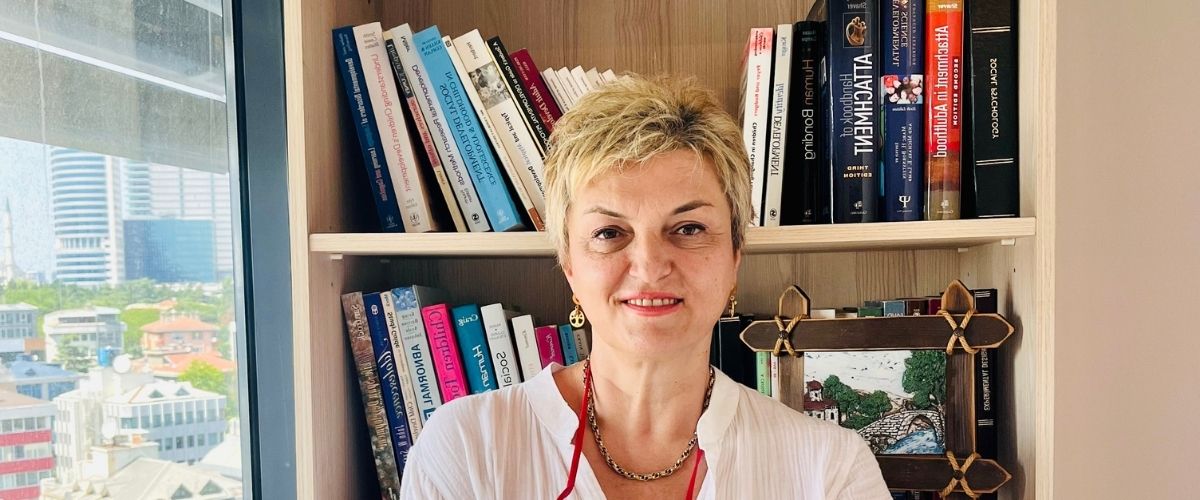Should Under 13s be Banned from Social Media?
Altınbaş Üniversitesi Psikoloji Bölümü Öğretim Üyesi, Prof. Dr. Dilek Şirvanlı Özen "Yasaklar, merak uyandırır. Bilinçli kullanım desteklenmeli”
Restrictions on 13-year-olds' use of social media are on the agenda. This ban can be considered as a protective step in the short term. Prof. Dr. Dilek Şirvanlı Özen, Professor at Altınbaş University Psychology Department, stated that this approach alone is not enough. She predicted that prohibitions would arouse curiosity in children and lead them to look for ways to overcome these prohibitions. “For this reason, it is essential for children to gain conscious social media usage habits along with bans in order to develop a healthy relationship with the digital world.”
Prof. Dr. Dilek Şirvanlı Özen believes that a ban on social media under the age of 13 will not provide a long-term solution unless it is supported by awareness raising and guidance. She explained that the aim should not be to completely remove children from social media, but to give them a safe and healthy habit of use. “Children learn what they see, not what they hear,” Prof. Dr. Özen said, emphasizing that adults should be role models for children in their use of social media.
Why is conscious use important?
Stating that it is not possible to protect children from the negative effects of social media use by simply banning it, Prof. Dr. Dilek Şirvanlı Özen listed her suggestions for consciously guiding children with the fact that social media has both positive and negative aspects:
- Digital literacy training: Children should be taught the skills to behave safely on social media, evaluate content and protect their privacy.
- Media Literacy Classes: Media literacy training in schools and with parental guidance can help children use social media in a meaningful and safe way.
- Parental guidance: Parents making a social media usage plan with their children and determining what content they can access and for how long can help children develop good decision-making skills.
Technological and Educational Solutions
- Filtering systems and security settings: Technological solutions designed specifically for children can be used.
- Age verification systems: Social media platforms can protect younger age groups by making age verification systems more effective.
- Content for children: Platforms can create safer content for children.
Risks of social media
Prof. Dr. Şirvanlı Özen states that social media offers opportunities for children, but improper or uncontrolled use poses serious risks:
- Comparison and low self-esteem: Children may experience problems such as depression and anxiety by comparing themselves to the idealized lives they see on social media.
- Digital bullying: Online bullying can negatively impact children's social media experience through behaviors such as threats, ridicule or exclusion.
- Addiction and sleep disorders: The instant gratification of social media can lead to addiction in children and disrupt sleep patterns by limiting physical activity.
- Safety issues: Identity theft, exposure to inappropriate content and exploitation by strangers are among the threats children face in the digital world.
Parents' role and solutions
It is of great importance that parents guide their children in the use of social media and set an example for them. Prof. Dr. Özen makes the following suggestions:
- Open communication: It is necessary to talk to children about social media use without being judgmental and try to understand the negativity they experience.
- Setting rules together: When setting limits on social media use, involving children in this process makes it easier to adopt the rules.
- Age-appropriate and safe platforms: Children should be encouraged to use platforms that are age-appropriate and have security measures in place.
- Emotional support: Emotional support should be provided for children's negative experiences on social media.
Is it appropriate to use other countries as an example?
Prof. Dr. Dilek Şirvanlı Özen from Altınbaş University finally mentioned examples from abroad. She pointed out that examples of social media restrictions in the world differ according to the social, cultural and legal approaches of countries. She noted that although such regulations are made to protect children from the risks in the digital world, their implementation and success depends on the cultural structure. “Given Türkiye's unique cultural structure, it is necessary to adopt a more balanced approach to education, awareness-raising and regulation of social media platforms in addition to restrictions. Such an approach would reduce tensions related to bans and allow children to act more safely and consciously in the digital world.” Şirvanlı Özen concluded the recommendations as follows. “In countries such as China, France and the UK, parental permission for social media use may be a compatible approach with the family structure in Türkiye. As in China and South Korea, bans on device use at night can be an effective model to protect children's sleep patterns and prevent addiction. Such practices can also be supported by parents in Türkiye.”


